The History of Gosforth Nature Reserve
Established as a haven for wildlife in 1929, Gosforth Nature Reserve exists thanks to the passion and support of NHSN members, volunteers and visitors. Here, you can explore the history of your reserve from its inception to the present day.
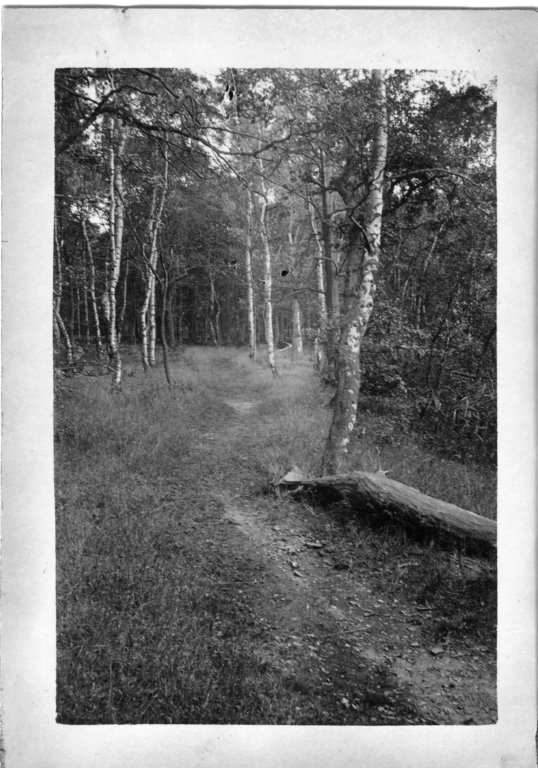
W.E. Beck leases shooting rights, marking the beginning of "Gosforth Park Bird Sanctuary"
NHSN Council member and keen ornithologist, W.E. Beck rents the shooting rights for the lake and its surroundings from High Gosforth Park Company to protect wildlife.
NHSN’s Ornithological Section visit the sanctuary for field meetings to observe the sites diverse birdlife.
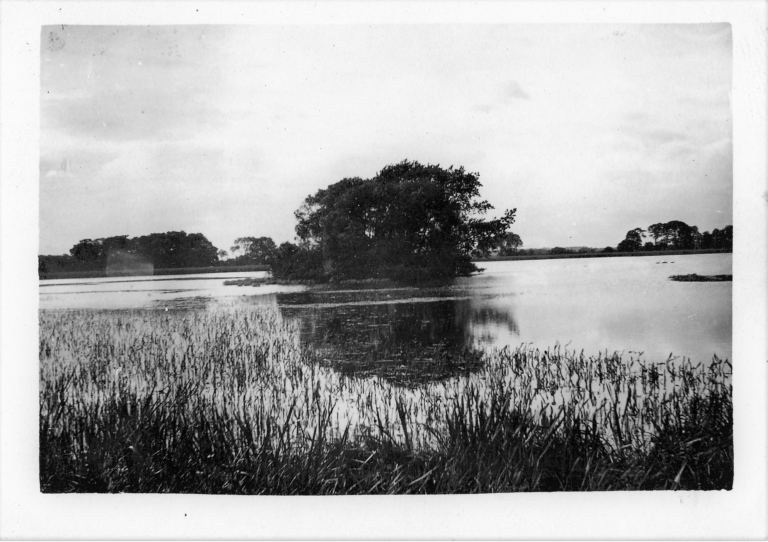
NHSN formally takes over the reserve
NHSN leases the shooting rights for Gosforth Park, paying a grand total of £25 per annum.
Initially, entrance to the reserve cost members 5 shillings for an annual pass to help meet the rent and expense of upkeep.
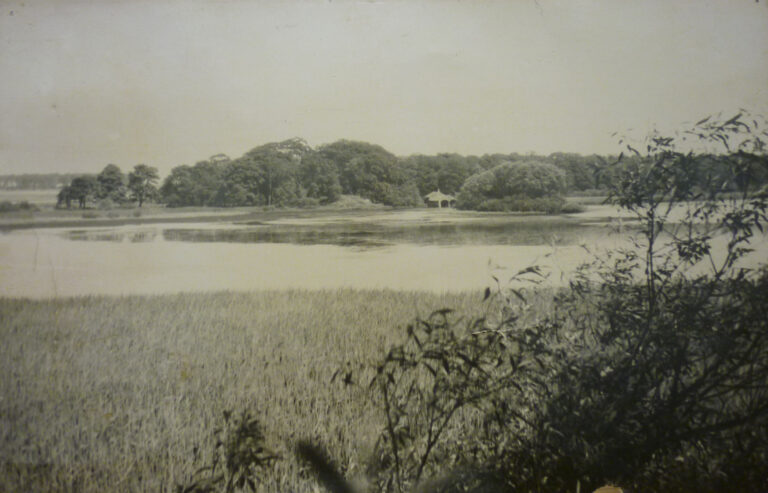
Monitoring of the reserve's wildlife begins
By 1947, a total of 105 bird species has been recorded from the Sanctuary, of which at least 35 species were observed breeding. A small herd of roe-deer also found refuge in the woods.
By 1949, visitors recorded the first sightings of Osprey and Lesser Spotted Woodpecker at the reserve – the latter a rare species in Northumberland.
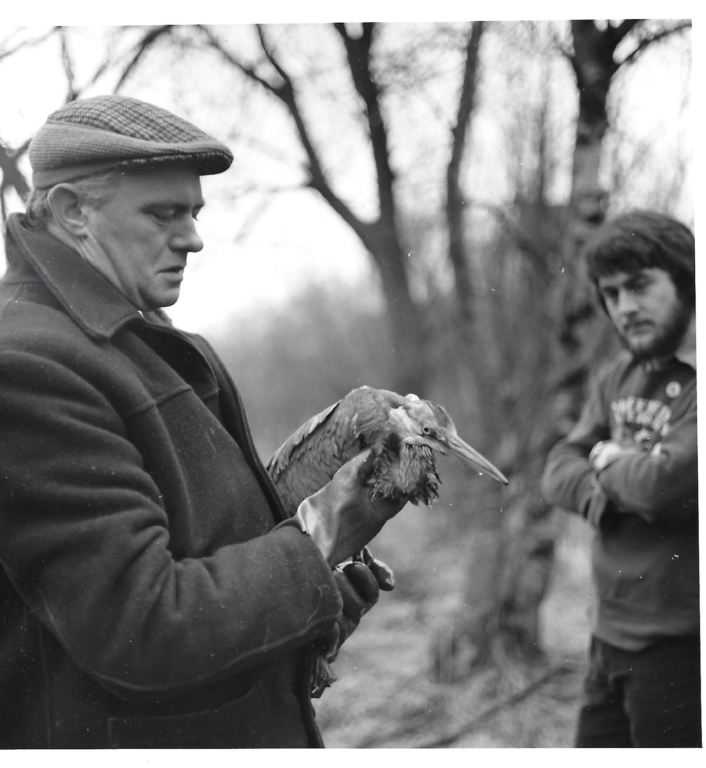
The first volunteers set out to protect wildlife
NHSN members give their time as part-time voluntary wardens, helping keep the reserve safe.
Others help with wildlife monitoring and the maintenance of footpaths, bridges, waterways and hides.
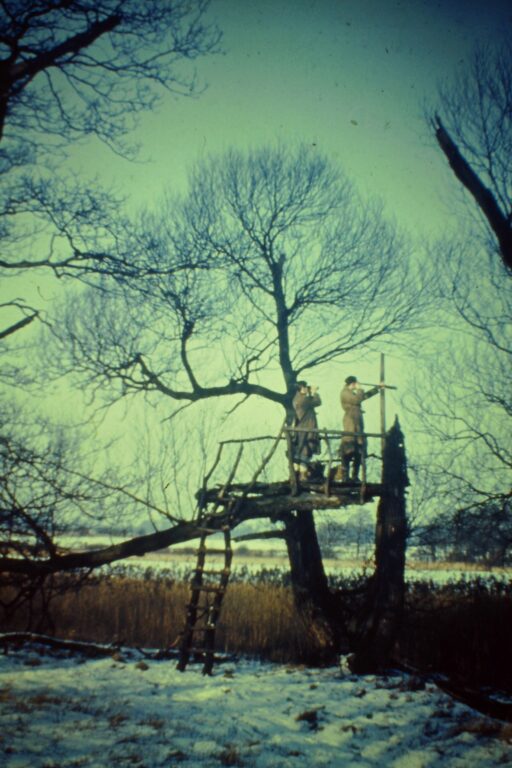
Work begins to inspire local school children
NHSN volunteers meet with members of local educational institutions, including the Director of Education for Newcastle and local headteachers to discuss allowing small parties of children to visit the reserve.
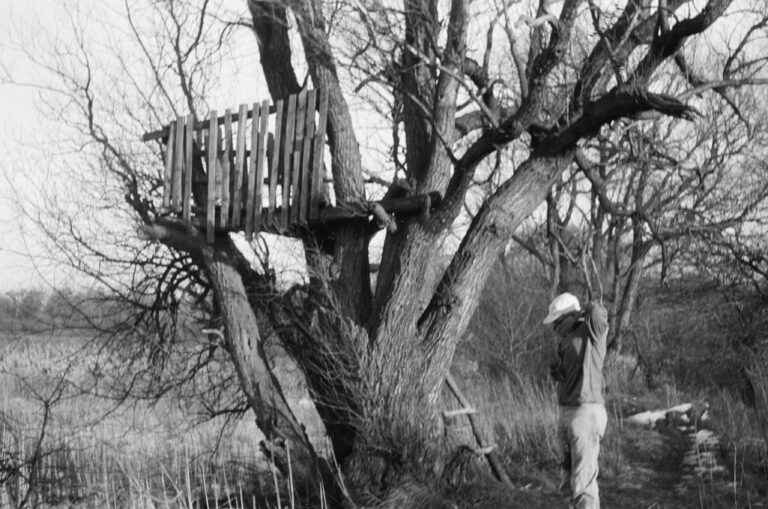
The threats facing Gosforth Nature Reserve are recongised
The reserve faces an uncertain future as a result of nearby development, tree felling and egg collecting.
NHSN members recognise the value of the reserve as a haven for wildlife and resolve to protect it for future generations.
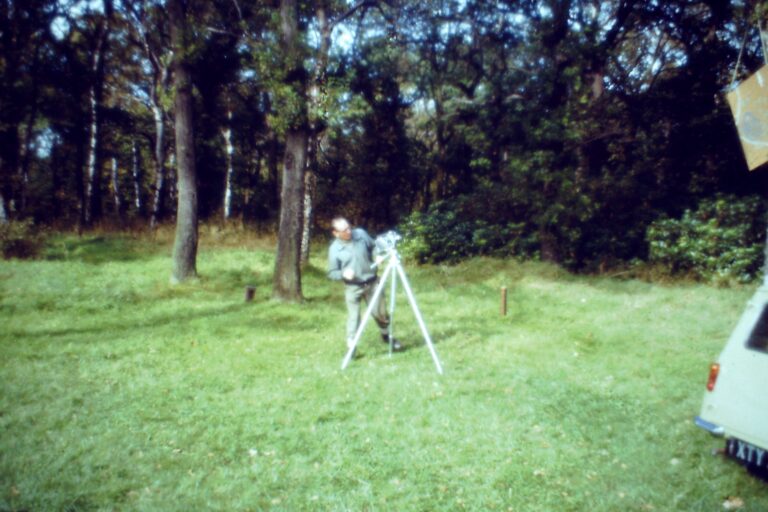
The Gosforth Nature Reserve management committee is established to protect the reserve
Little progress has been made in negotiations aimed at ensuring the continued safety of the reserve.
In an effort to achieve concrete results, NHSN appoints a small management committee under the chairmanship of Mr E.L. Arnold. The committee decides to protect the site for its educational value.
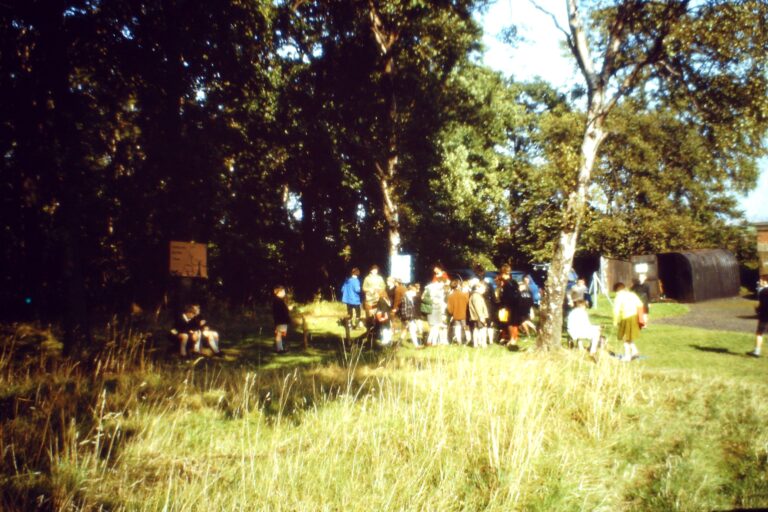
Educational opportunities develop
350 Newcastle schoolchildren visit Gosforth Nature Reserve to walk a nature trail from Lake Lodge to the Lake.
In 1964, two further nature trails are developed and prove popular with visiting young people.
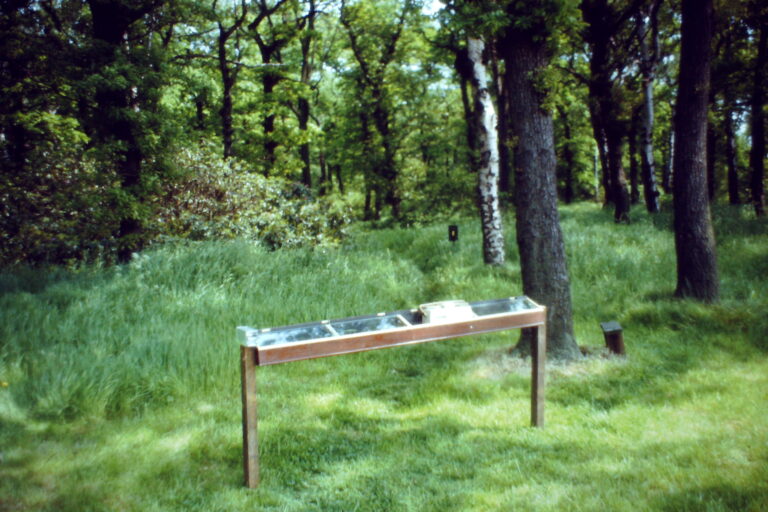
Bird ringing begins at the reserve
The first ornithologists set out to monitor birdlife at the reserve through ringing.
During 1965, volunteers ring 278 birds of 28 different species including willow tit – a rare species that can still be observed at the reserve in the present day.
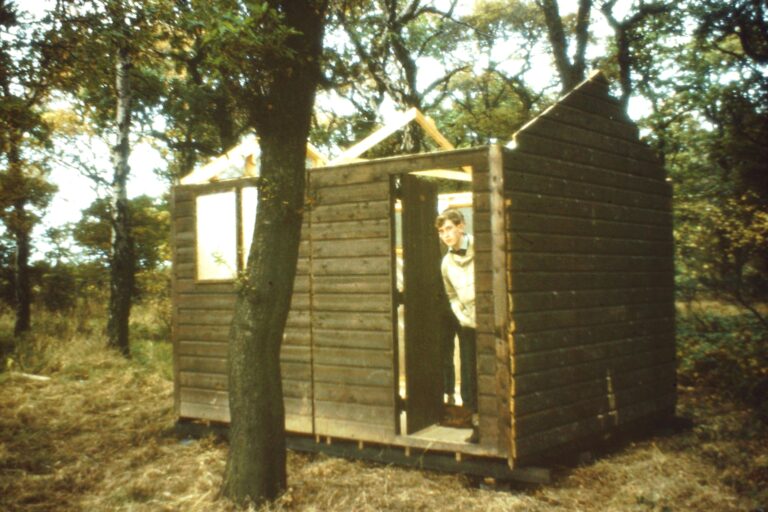
The first ‘Members Hut’ is built and a recording sheet system is introduced to encourage members to record wildlife – an early example of citizen science.
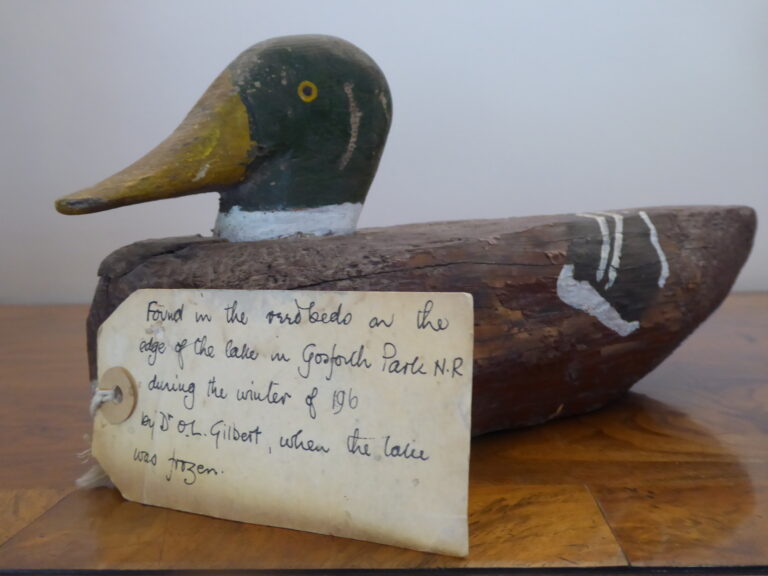
Gosforth Park Nature Reserve is born
In agreement with the High Gosforth Park Company, it is decided to change the name from Gosforth Park Bird Sanctuary to Gosforth Park Nature Reserve to reflect its broader, educational purpose.
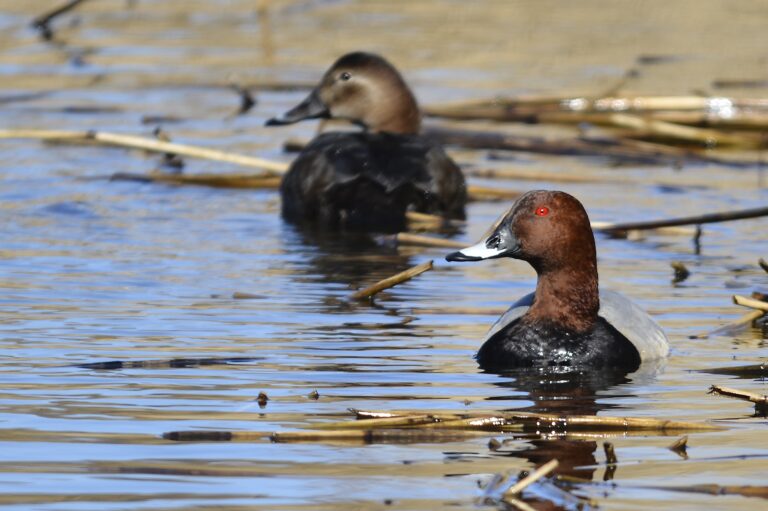
Volunteer management bears fruits
Volunteers raise the water level in the lake and are rewarded as a pair of Pochard successfully breed for the first time.
Marsh orchids increase “spectacularly” to several hundred healthy flowering spikes.
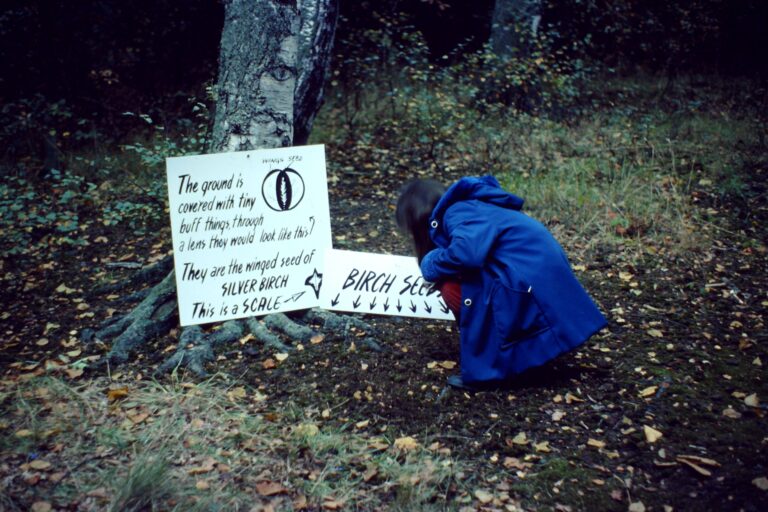
Open to the public for the first time
Assisted by local wildlife organisations, NHSN holds a “highly successful” public open day, raising over £300 for conservation.
The educational value of the reserve is recognized, as is the importance of public awareness of the immense value of such a green space so close to urban Newcastle.
Lake Lodge is purchased by NHSN as a full-time home for an onsite reserve warden.
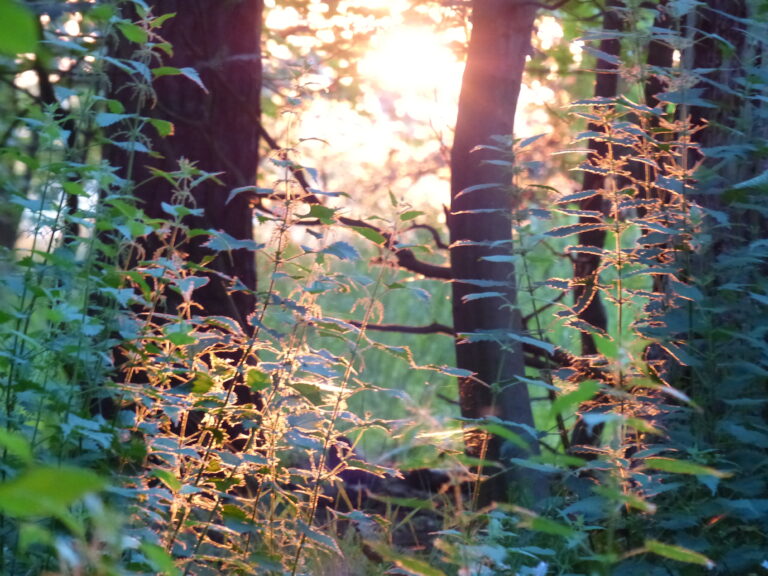
Special Site of Scientific Interest
The national and local value of the reserve for wildlife is recognized as it achieves SSSI status.
This covers the Southern section of the Reserve including the Lake, reedbeds and woodland. Notified features include standing water, reedbeds, invertebrate assemblages.
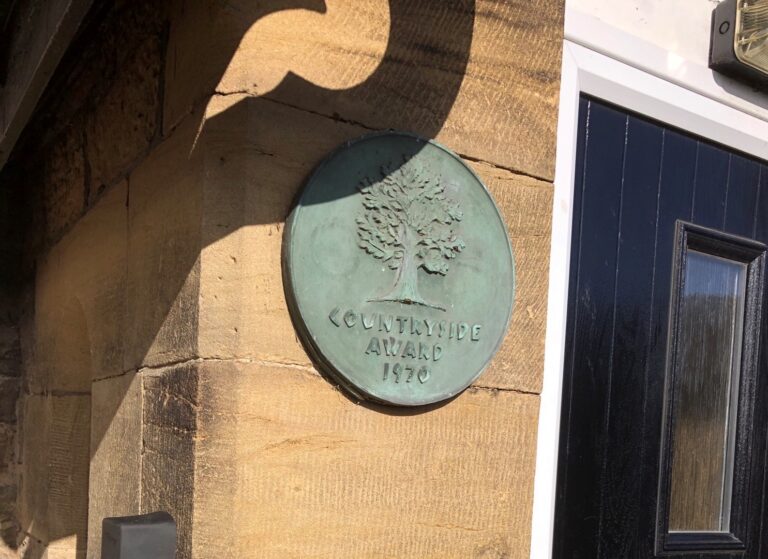
Countryside Award
NHSN receives a Countryside Award and the educational work of NHSN members and volunteers is recognised with a bronze plaque, still displayed on Lake Lodge.
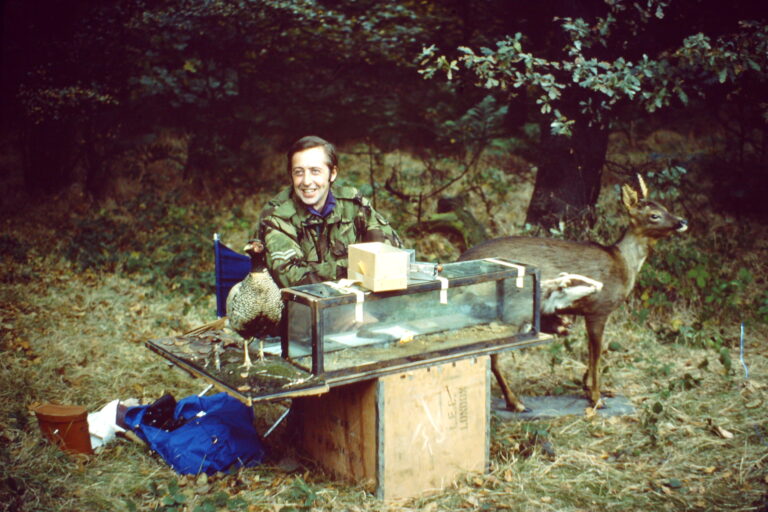
Wildlife monitoring continues
Local naturalists identify 400 moths of 39 species, some of which had not been recorded from the area. One trap alone contained 8 poplar hawkmoths.
Regular moth monitoring at the reserve continued thereafter and volunteers continue to record moths to the present day.
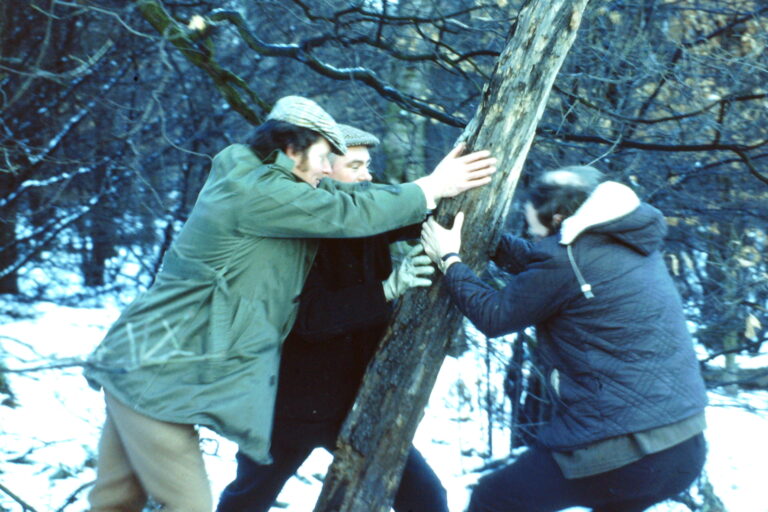
Celebrating 50 years of Gosforth Nature Reserve
To celebrate 50 years of Gosforth Nature Reserve, NHSN members explore the possibility of creating a covered hide inside the reedbeds.
A platform and path are constructed and the hide is completed in 1980, providing new opportunities for visitors to watch and enjoy nature.
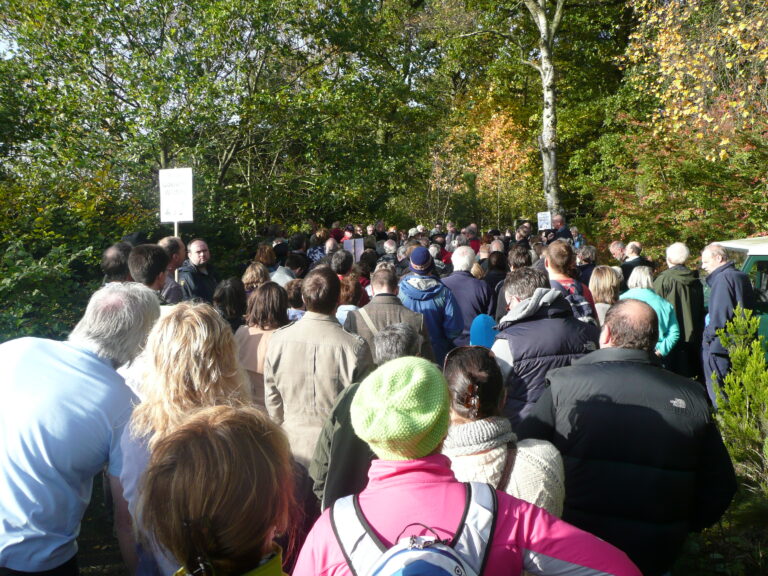
Members take a stand for the reserve
NHSN members take a stand and object against amended proposals for development nearby. This objection led to the protection of the reserve from a proposed extension of land for housing.
Members have continued to actively campaign for the protection of the reserve ever since.
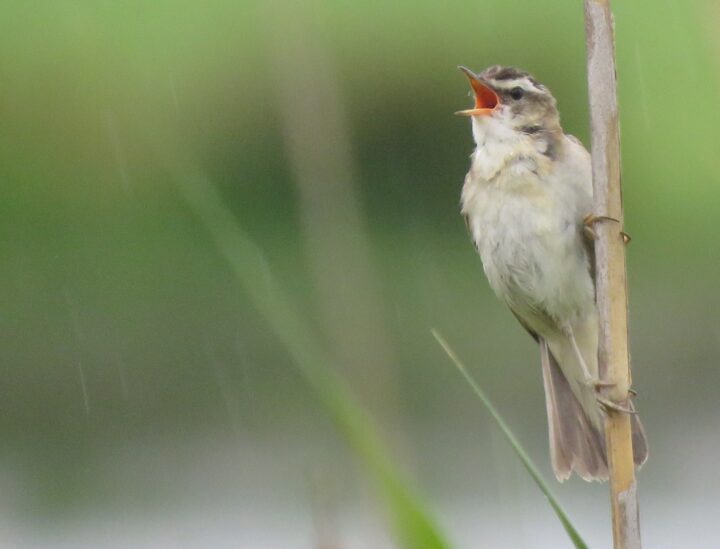
First full season of Constant Effort Site ringing at the reserve
Volunteers set up a Constant Effort Site to monitor changes in bird populations and productivity from year to year, with a particular aim of monitoring reed and sedge warblers in relation to reedbed management.
489 birds were caught during 16 visits, including both reed and sedge warblers.
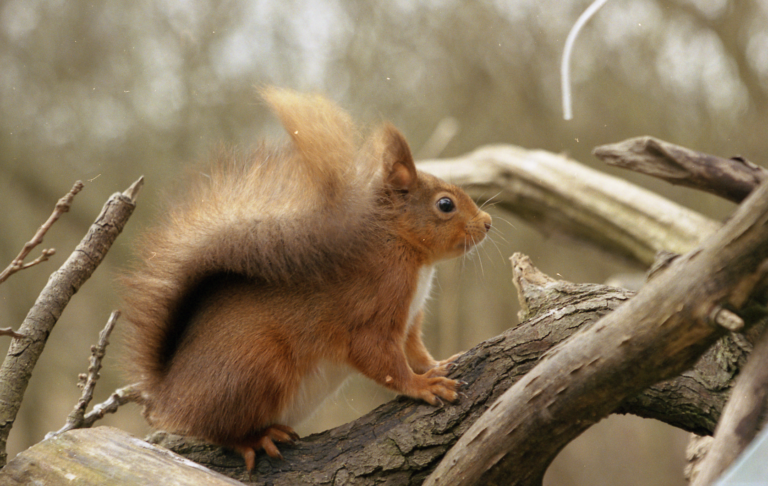
A busy year for urban wildlife
Volunteers undertake efforts to protect badgers at Gosforth Nature Reserve and conservation work results in a thriving population of Red Squirrels.
Declining Spotted Flycatchers breed at the reserve for the first time in recent history and major efforts are undertaken to restore and protect reedbed habitats.
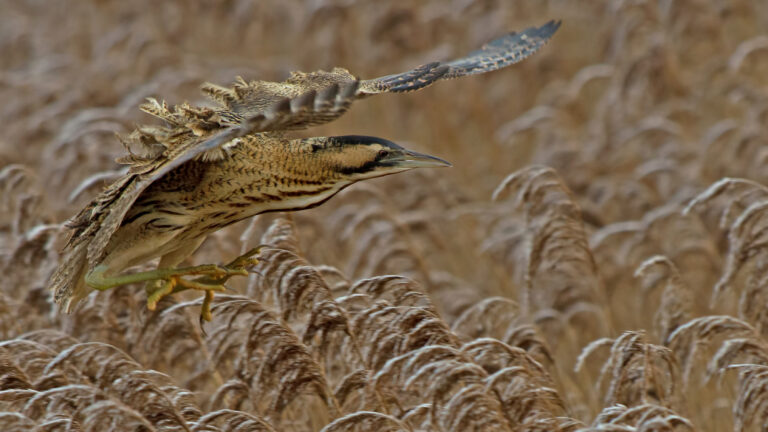
Reedbed management leads to results
Following the hard work of volunteers to restore GNR’s reedbeds, a Bittern is recorded on site.
In 1994, reedbed specialists such as Marsh harrier and Bearded Tit are recorded by volunteers.
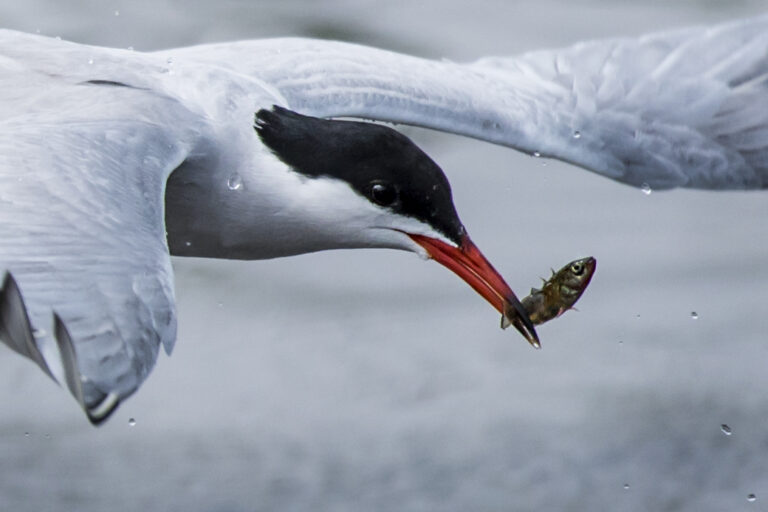
New breeding records
Great Crested Grebe and Common Tern breed for the first time following work to improve the wetland.
It is noted that management by volunteers is greatly increasing the diversity of the site.
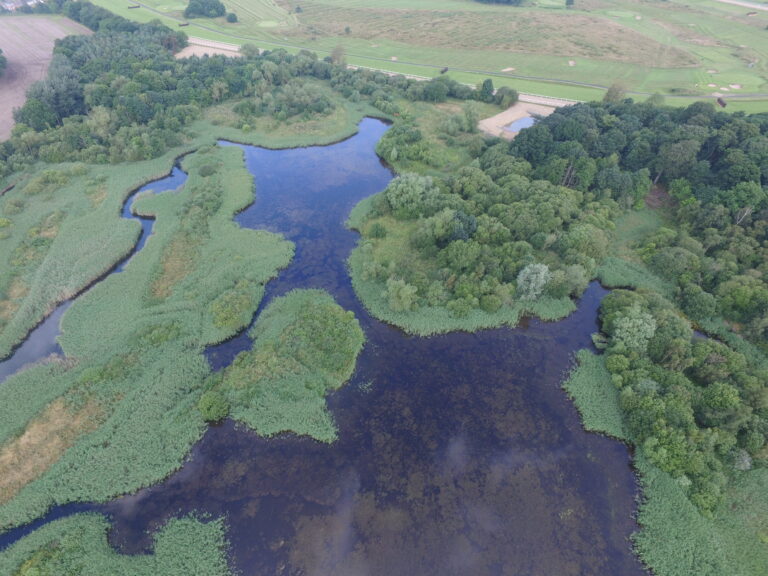
Biodiversity Action Plan
Newcastle City Council launch their Biodiversity Action Plan and NHSN members contribute to show Gosforth Nature Reserve as a major asset for city wildlife.
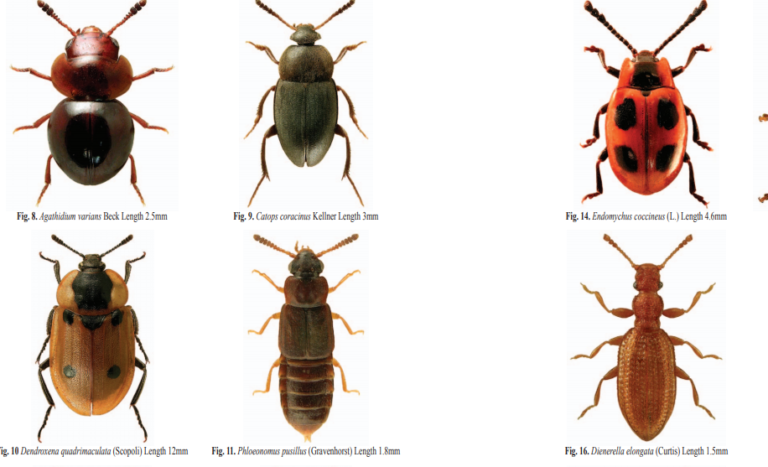
Beetle diversity highlighted
A beetle survey by Martin Luff identifies 200 species with at least 3 nationally notable species.
One of these, Neobisnius subuliformis, is new to North East England.
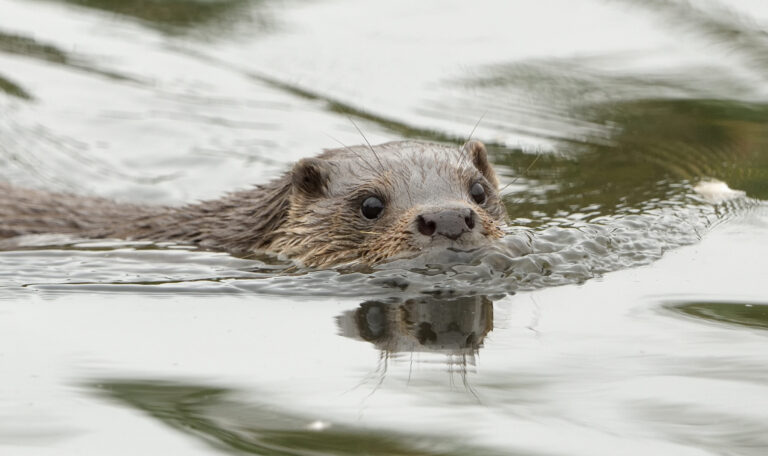
Otters establish
Otters have now become a regular feature and Gosforth Park Nature Reserve may well be one of the best places in the area to see this elusive mammal.
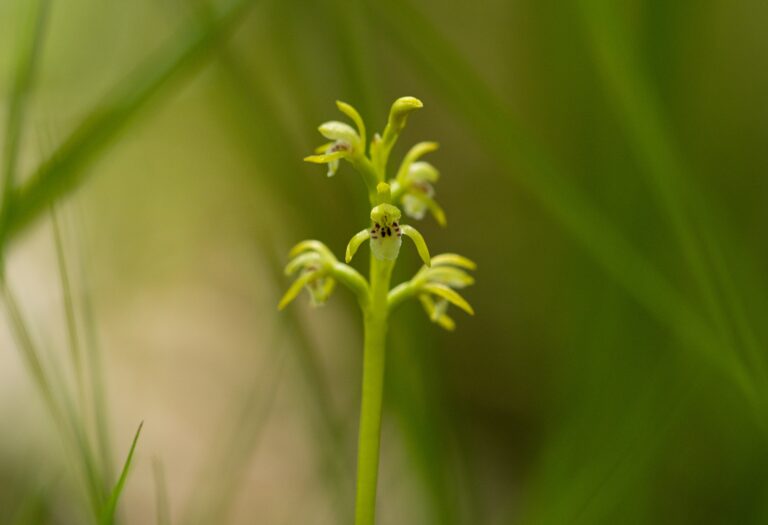
GNR makes the small screen
Chris Packham and Martin Hughes-Games visit the reserve and footage is broadcast on Springwatch of ferns, Coralroot Orchids and a roost of 70 Noctule bats.
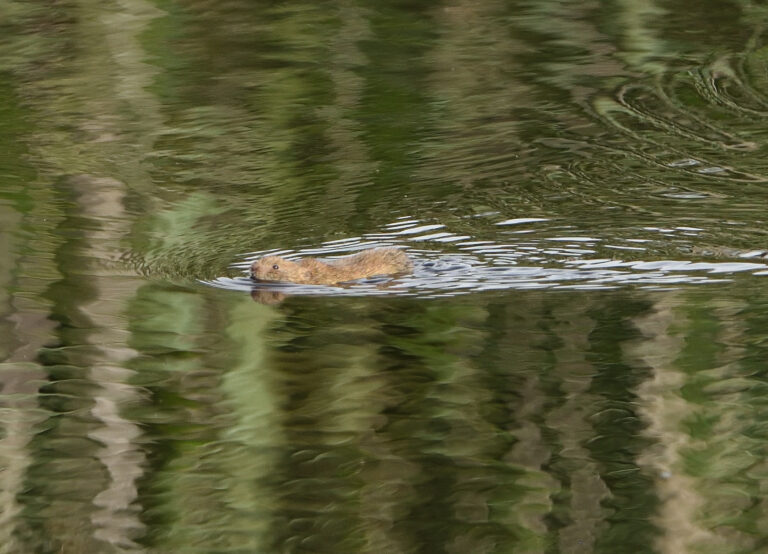
Water Voles return
The hard work of volunteers pays off as Water Voles are recorded at Gosforth Nature Reserve for the first time in decades.
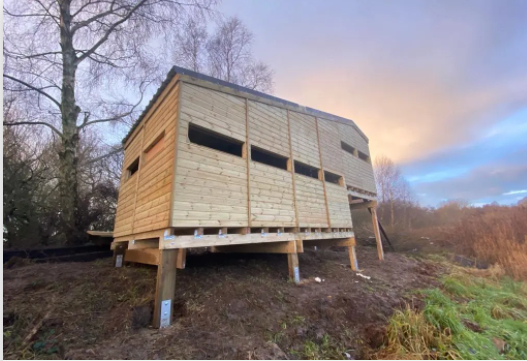
Beck Hide Opens
Thanks to funding from the National Lottery Heritage Fund, a new bird hide is built to allow visitors more views over the lake.
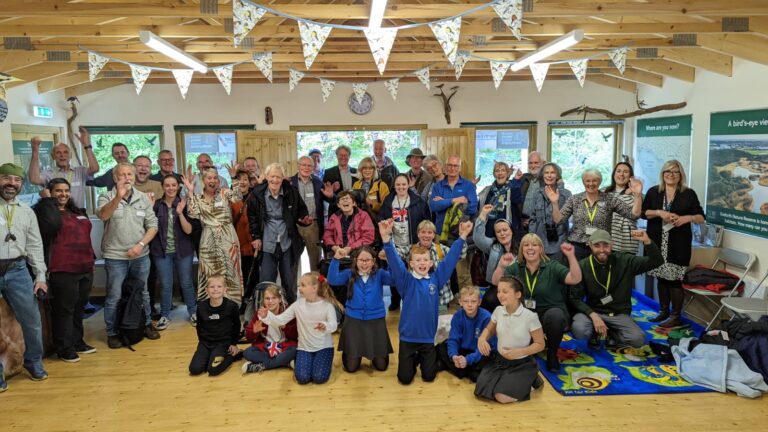
Field Studies Room Opens
A space to welcome school and community groups is built thanks to funding from the North East Local Enterprise Partnership and NHSN Members
Centenary of Gosforth Nature Reserve
Special events bringing together members, volunteers and partners who have helped the reserve throughout its long history are held to celebrate the reserve’s 100th birthday and thank those who have all worked to
protect this valuable place.